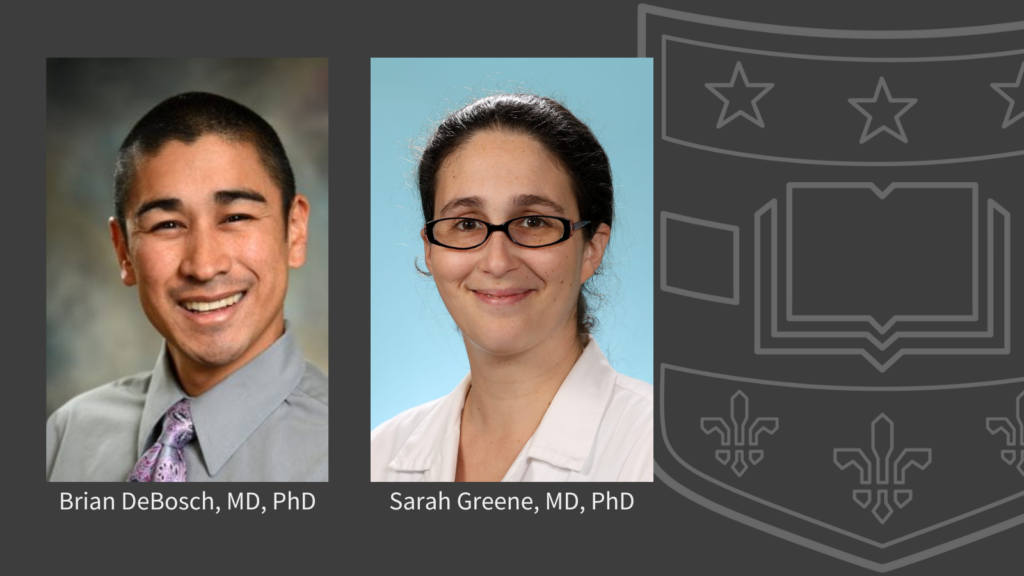Washington University Institute of Clinical and Translational Sciences (ICTS) and The Foundation for Barnes-Jewish Hospital have awarded Brian DeBosch, MD, PhD, and Sarah Greene, MD, PhD, grants as part of the 17th annual Clinical and Translational Research Funding Program (CTRFP). This program is the largest internal grant funding program in the ICTS, requiring applicants to submit proposals for projects in three categories: clinical/translational, community-engaged research, and biostatistics, epidemiology, and research design.
Brian DeBosch, MD, PhD
Project title: “Predictors of Childhood Obesity and Fatty Liver Disease Through Early-Life Stool Virome and Metagenomics”
Washington University School of Medicine: Department of Pediatrics, Division of Gastroenterology, Hepatology & Nutrition
This project aims to identify predictors of obesity and its metabolic complications in otherwise healthy children using virome and metagenomic data from the first stools in life. If we are successful, the data will justify two key next steps. First we will have newly discovered information to then study how and why these virome or metagenomic agents might interact with the host to cause metabolic disease in children. Second, we will validate the predictive findings in subsequent patient cohorts. Our long term goal is to develop early life stool clinical biomarkers to predict obesity and its complications.
Sarah Greene, MD, PhD
Project title: Developing Diagnostics for Onchocerciasis
Washington University School of Medicine: Department of Pediatrics, Infectious Diseases
Onchocerciasis is the 2nd leading infectious cause of blindness worldwide, with > 200 million people at risk of infection in Africa. The World Health Organization coordinates efforts to eliminate this infection, but improved diagnostic tests are needed to map infected areas and assess program success. We used a novel approach for protein analysis of parasite reproductive tissue isolated by laser capture from biopsies of infected patients to identify candidate biomarkers for diagnosis of active infections. We identified and will further evaluate 2 potential biomarkers. Further studies of these and additional biomarkers identified in this project may lead to new diagnostic tests needed for elimination of this disease.
